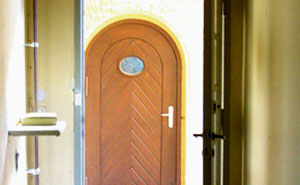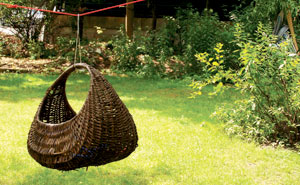
English • Deutsch



| HomeDrop-inEmergency ShelterDonationAbout usNewsPressContact |
| Team History Philosophy |
History The registered charity "Interkulturelle Initiative" was founded in 2001. The concept of our intercultural shelter was created by women who had been working in shelters. Already in the 1990s more than 50% of shelters' residents in Berlin were immigrant women. There are, however, shelters in Germany and in Berlin where about 4 in 5 shelter residents are immigrant women. These facts are still true, which has recently been confirmed by the federal government's schedule for the current campaign against domestic violence. The situation of immigrant women in violent relationships is affected both by the experience of mistreatment perpetrated by their husband or male relatives and by legal and social issues, as there are
Besides the experience of violence battered women suffer from:
From the disproportionate percentage of immigrant women among shelter residents we cannot draw the conclusion that they are more often exposed to domestic violence than German women. Having no other choice, immigrant women, however, much more often than German women take refuge at a shelter to leave a violent relationship. For women in violent situations who have not yet made up their mind about leaving their spouse a temporary stay in a conventional shelter is a good choice. For many immigrant women, however, leaving their battering spouses can be a decision of vital consequences. When women who gained their immigration status by marrige leave their battering husbands, they might impair their immigration status. The registered charity "Interkulturelle Initiative" was created by a group of women who were formerly working in a conventional West-Berlin shelter. Their goals have been to address the specific situation and unmet needs of abused immigrant women by providing advice, shelter and information for them and their children. On 1st April 2001, our charitiy opened the doors of the first intercultural shelter, located in West Berlin. The main features of the project are its three-staged advice, accomodation services and its crosscultural approach. A small shelter (25 beds) provides a safe place where women can come to rest. Due to their specific situation, immigrant women often have to stay longer in a shelter. After the first period of crisis intervention in the emergency shelter, many women might feel the desire to find a more restful place, although they are not yet ready to leave the shelter's safe atmosphere. These women can move to our sheltered housing project. As our advice service offers three-staged support in the emergency shelter, the housing project and the after-care program, we can provide a continuum of counselling over a long period. As we have shown above, immigrant women and their children get appropriate service and support, the issues due to their unpriviledged status being taken into account. The crosscultural approach has its impact on all our fields of activities: the counselling and support services, the organisation of shared living, the staff recruitment, the children's programme and the public relations work. The Interkulturelle Initiative is dedicated to facilitate abused women's equal involvement in community life, irrespective of their background. Furthermore we claim that abused women and children should be able to apply for an immigration status, which makes both independent from the women's spouses. We stand up against forced marriages, human trafficking and any form of discrimination and racism. |
Fachberatungs- und Interventionsstelle: (030) 80 19 59 80 • Frauenhaus: (030) 80 10 80 50 • Datenschutz